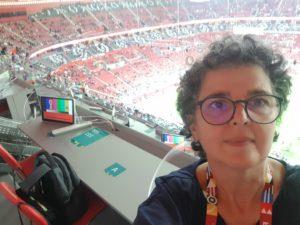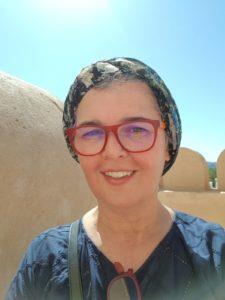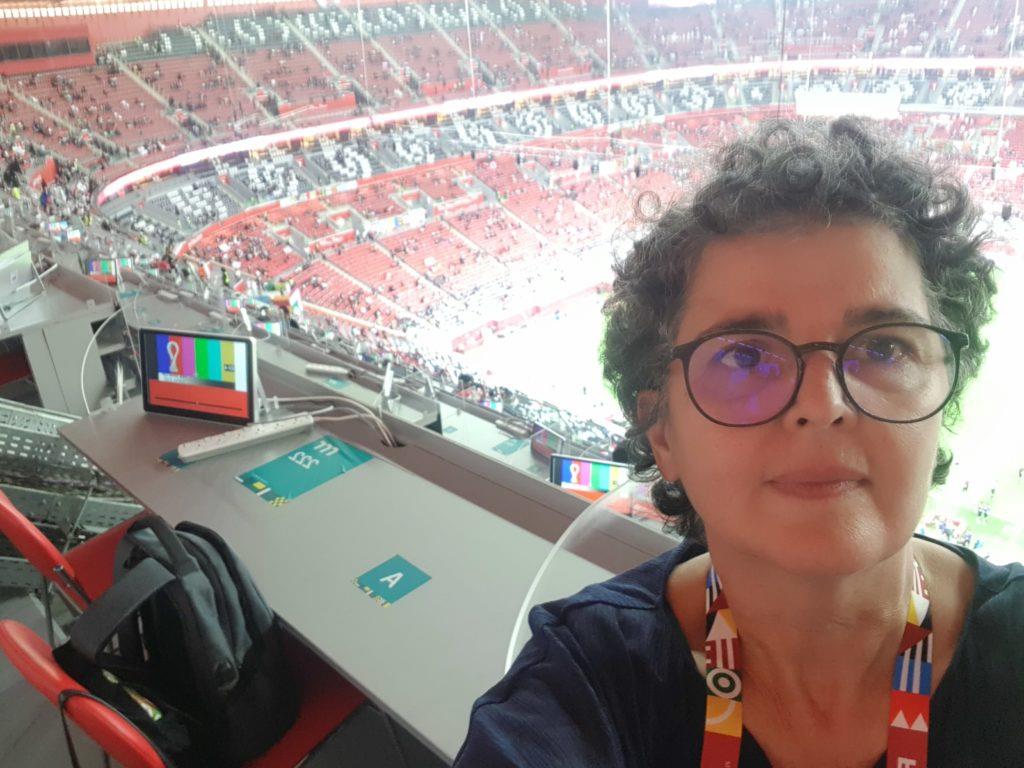(MENAFN- Brazil-Arab News Agency (ANBA))

São Paulo – Accessibility actions have grown by leaps and bounds in Qatar in recent years. So says Josélia Neves , professor at in Qatar and one of the Gulf country's leading experts in the field. She believes the World Cup to be held in Qatar in November is one of the factors that have spurred investments to make venues and events more accessible.
“Due to the World Cup, by imposition of FIFA and above all because the country is more open to [welcome people with] deficiency, the opportunity arose to drive efforts that were already being made across the country. I'd say the World Cup was a driver for something that had been growing before, but needed a stimulus to give more visibility to the matter,” she told ANBA.
Born in Mozambique, she has lived in Qatar for nine years and saw an improvement in inclusion .“This does not mean that Qatar is an accessible country. I would say that the topic has never been so discussed as it is now, and very visible meaningful progresses have been seen. We that have worked in the field for quite some time believe we are living a major turning point in inclusion and accessibility in Qatar and consequently in the Arab world. And who knows the global repercussions as the dimension of this megaevent leads to a butterfly effect,” she finished.
The last decade in Qatar
When she was selected to be part of the team that would fund the Arab world's first master's degree in Audiovisual Translation, Neves knew this would be a relevant experience.“My basic training is in languages and translation. But I specialized since in accessible communication and inclusion. When I was hired to give classes on audiovisual translation, I couldn't help but introduce accessibility issues in my curriculum. This region had never talked about or done subtitling for the deaf or audio description for the blind before. I trained those people that are now the experts in the Arab world,” she revealed.
Here's more on this:
She has also seen results in multisensorial communication. These are the productions that create inclusive experiences in exhibitions, shows and events.“So we have worked with museums and cultural spaces, schools, media – television and film – with partners in tourism and hospitality fields, sports, shows and leisure. We have carried out audits, given training and consulting. Countless activities. We've trained a research-action group, , that coordinates all efforts of the university in the field. It's through Access Hub that we work in community,” she finished.
2022 World Cup

Josélia Neves has been in Qatar for almost a decade and sees accessibility gaining space.
She told ANBA more details about what has happened in the moments leading up to Qatar's World Cup.“Access Hub is intensely involved in supporting the country's efforts to make it 'the most accessible the World Cup in history,' as the country's high officials have said. I'm extremely involved in training volunteers that will support people with deficiency during the event. I participated in the training of those who will do the audio descriptions during the football matches, and I'll be with my students doing it during the main ceremonies,” she said.
She believes the work of the Cup will definitely be the most important she has ever done.“It'll have a direct impact on people across the world,” she stressed.
But her team also supports cultural activities across the Arab country by creating elements to mediate spaces and events. At Hamad Bin Khalifa University (HBKU), which is part of the education city , she says that all professors are actively participating in the activities.“All teaching is focused on innovation, investigation, and in the case of my center, social justice. So, our days are divided into applied investigation extension projects with the community, and classes,” she said.
Neves argues that Qatar should invest more in education across all levels. The Qatar Foundation, she explains, is the most interesting example of the country's educational system as it brings together all degrees and teaching fields and has a major role in raising awareness of the inclusion.
Overseas, Neves keeps working with institutions from Portugal and other countries. She belongs to two research groups, and . Furthermore, Neves collaborates with other universities and have a close relationship with her Brazilian peers.“I've worked a lot with colleagues from Brazil since 2000. I've traveled many times to provide training, participate in meetings, be part of projects, give consulting. I hope to continue on this meeting of common desires,” she stressed.
Through this connection, the researcher believes that some educational projects could be developed between Qatar and Brazil. Nevertheless, Neves notes that the barrier of the language would have to be overcome for such a partnership to occur.
Translated by Guilherme Miranda
Personal archive/Josélia Neves
Personal archive/Josélia Neves
The post appeared first on .

.jpg)



















Comments
No comment